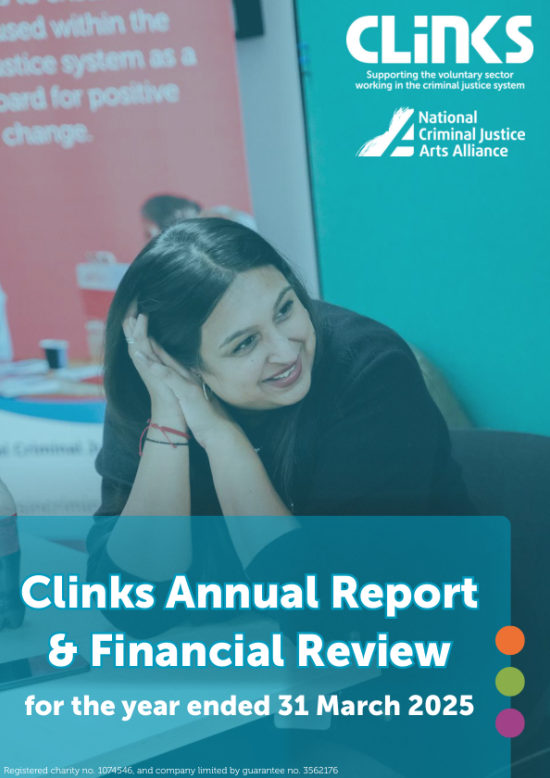This guest blog is from Alex Walshe of Step Together Volunteering, who help people transform their lives through community volunteering. They provide tailored one-to-one support to help individuals into volunteering placements that match their needs and interests, and help them develop the personal and practical skills required to build a more positive future. Alex writes about the benefits of, and overcoming the barriers to, community volunteering.
The story of ‘Mooch’, a 61-year-old from an inner city area of Manchester, is a moving example of the power of community volunteering in transforming the lives of those with previous convictions. Keith Ashley, better known as Mooch, (watch his story) grew up in a disadvantaged neighbourhood where he was surrounded by violence. Trapped in a cycle of offending, Mooch has spent most of his life in and out of the prison system.
After his release in 2014, Karen from Step Together worked with Mooch over a long period, taking time to understand Mooch, his background, his challenges and his hopes. When he felt ready, Karen supported Mooch to start volunteering with a homeless charity in Manchester. Today Mooch is employed as a project assistant on an initiative aimed at reducing homelessness in the city. Having never worked before, Mooch takes a lot of pride in his new position and responsibilities. His social network of support is growing and he has recently reconnected with his sister who he hasn’t seen for over 12 years.
The challenges facing people in the criminal justice system
Many people enter prison with a range of complex needs that, if not addressed while inside, can often lead to reoffending on the outside. Mental health needs, homelessness, substance misuse are all factors that can contribute to offending behaviour. In fact, more and more people are leaving prison with newly acquired substance misuse and mental health issues.
On leaving prison, many will have lost their homes, jobs and damaged relationships with their family whilst serving their sentence, making it far harder to integrate back into society, and vulnerable to falling back into criminal behaviour.
The benefits of community volunteering
We aim to reduce the number of people who reoffend on leaving prison, by inspiring and enabling them to participate in community volunteering, and helping them to develop the personal and practical skills required to build a more positive future.
Working in close partnership with prison education and training departments, probation services, community safety partnerships and local councils, we ensure that volunteering is embedded as part of a holistic package of resettlement support. Through our small outreach team covering the North West, London and Dorset, we provide intensive one-to-one support to around 250 individuals a year
With the right support and the right placement, volunteering enables people with convictions to engage in positive and purposeful diversionary activity, improving integration into the community, and learning new skills to take into the workplace. For those that have been long-term unemployed or who have never worked before, volunteering provides an opportunity to experiment with different interests and strengths and consider career routes which could lead to more sustainable employment.
However, potentially most crucially, volunteering helps individuals to shift towards a pro-social identity; building positive social networks and a sense of belonging, whilst enabling them to make a contribution to society, increasing self-esteem and self-worth. It is this positive identity, that empowers individuals to have agency over their choices and become more future-orientated, developing the resilience to turn their back on offending.
Barriers to community volunteering
One of the key barriers to facilitating community volunteering opportunities for those with previous convictions is that organisations can be risk averse. Naturally, organisations providing community volunteering opportunities need to protect their own customers, business, facilities and reputation. Some can be reluctant to take a chance on someone with a history of convictions and may have preconceptions that are difficult to shift. A general ‘one size fits all’ policy on recruiting volunteers with convictions can be discriminatory and create unnecessary barriers to volunteering.
This stigma is one of many barriers people with convictions experience when looking to make a change in their lives. The Charities Act 2016, due to come into force early 2018, extends the conditions under which individuals are disqualified from acting as trustees to include senior management positions. This presents a further obstacle and reinforces the disproportionate measures taken to protect organisations. Guidance on the Act will be published on the Unlock website in February.
A further challenge we face is that charities are familiar with dealing with a certain profile of volunteer. A report by NCVO, published in November 2017, said that those volunteering with charities are predominantly people from ‘well resourced and highly educated backgrounds’. Many charities are not familiar with working with people from disadvantaged communities, many of whom have few or no qualifications. It can be difficult to set up volunteering opportunities when the skills of the individual concerned cannot be demonstrated through qualifications. In addition, many people leaving prison have poor literacy and numeracy and a lack of essential skills for employment.
Overcoming the barriers
Step Together works directly with volunteer managers across a wide variety of organisations to identify and develop bespoke volunteering roles for our clients. Once a role has been offered, we will often accompany clients to their volunteer sessions, providing support until they settle in to the role. For individuals who experience anxiety, the first time may be just visiting and observing, the next time they may volunteer for a short period of time, which will then gradually build up with each session.
We advocate for safe practice in order to remove organisational barriers to volunteering. From our experience, we have put together the following recommendations for charities to consider in their volunteer recruitment:
- One-size-fits-all policies can be discriminatory. Consider risk on an individual basis and how it can be managed, for example adapting a role to reduce levels of risk or by providing additional supervision.
- Take a positive approach to disclosure. Step Together supports individuals with offences and restrictions to disclose these in an honest and proactive manner. Whilst ensuring that individuals disclose all that they need to, we also encourage them to work through any feelings of shame they have surrounding their offence. Clients have written disclosure letters about themselves and how their offences have shaped their life and experience. It is worth remembering that almost one in four people of working age has a criminal record.
- Organisations should not routinely undertake DBS checks. Just because a volunteer is eligible for a DBS check, doesn’t mean you necessarily need to undertake one. If the volunteer will not have unsupervised contact with vulnerable adults or young people a DBS check is unnecessary and potentially discriminatory.
- Transparency and open, supportive, non-judgmental conversations are key to ensure that the potential volunteer feels at ease and no assumptions are made about their support needs. Volunteering is a two-way process and it is important for the expectations of both parties to be aligned.
- Investing time in a pragmatic approach to volunteer recruitment will pay dividends in the long term. Those with lived experience of the challenges faced by your beneficiary group may have the most to offer, and volunteers who have the most to gain personally from the experience of volunteering are often amongst the most loyal and reliable of volunteers.
- Encourage staff to focus on skills and experience not offences. Look beyond the label or you might miss out on a truly wonderful volunteer, who has a wealth of knowledge, skills and experience to offer your charity or organisation.
Find out more about Step Together on their website here
What's new
Blogs
Anne Fox CEO of Clinks to stand down after a decade of service
Latest on X
The role is for a leader from an organisation focused on racially minoritised people, with expertise in service delivery, policy, advocacy, or related areas in criminal justice. Racial disparities are present at every CJS stage. This role ensures these voices are central in shaping policy to help address and eradicate them. Apply by Mon 18 Nov, 10am. More info: https://www.clinks.org/voluntary-community-sector/vacancies/15566 #CriminalJustice #RR3 #RacialEquity

